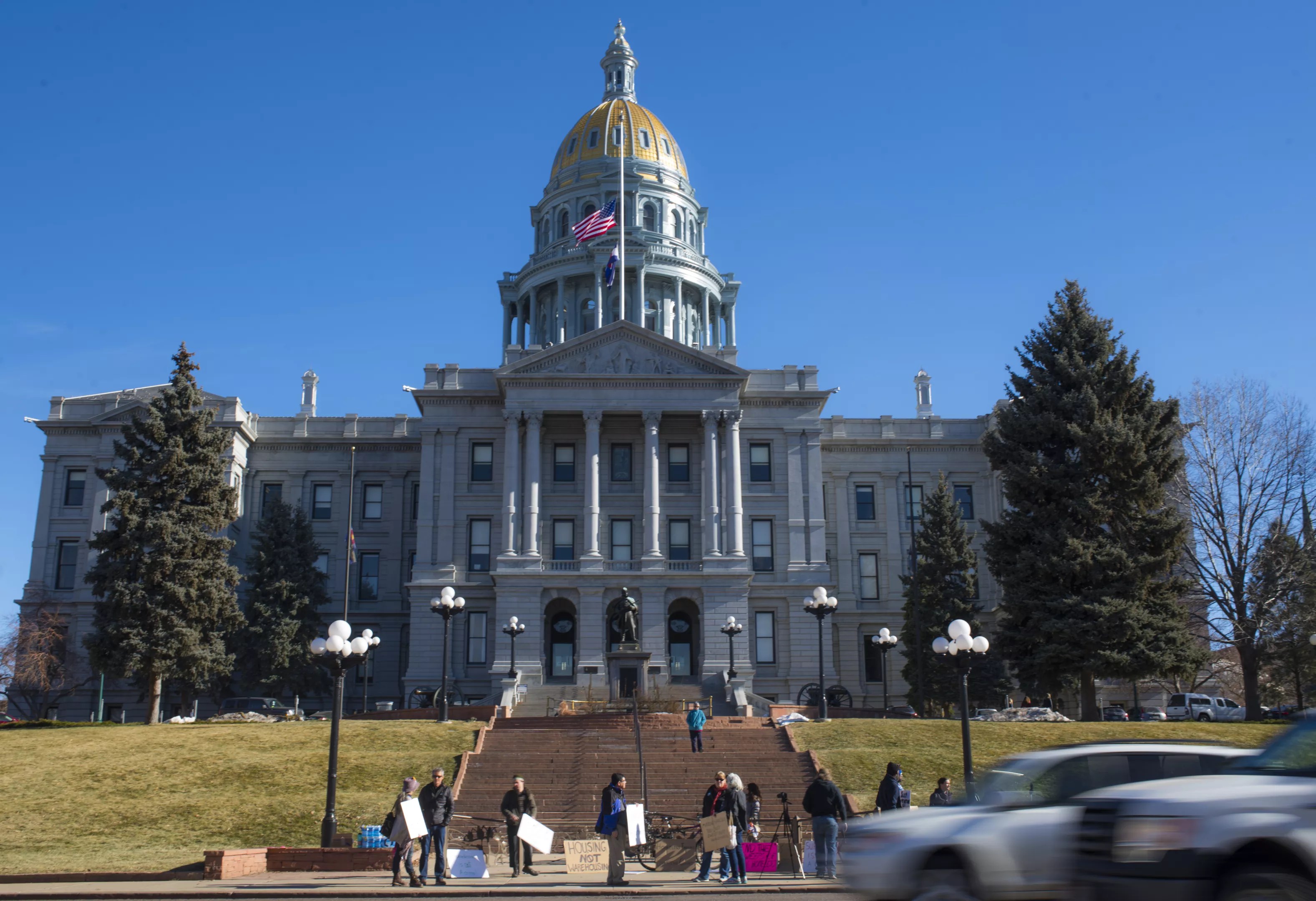
Evan Sem

Audio By Carbonatix
Add the Colorado Legislature to the rapidly growing list of public institutions shutting their doors in response to the coronavirus outbreak.
Lawmakers plan to pass a joint resolution to adjourn the Colorado General Assembly for two weeks beginning Saturday, March 14, top Democratic and Republican lawmakers said at a special meeting of the Executive Committee of the Legislative Council.
“In a single day, there can be thousands of people in the Capitol,” said House Speaker KC Becker, a Democrat from Boulder. “People that come from across the country, people that come from all across the state, to participate in the legislative process. We don’t want to limit public access, but continuing on could put a lot of people at risk, because so many people gather here.”
It’s possible, lawmakers said, that the planned two-week adjournment could end up lasting much longer, as governments and private entities continue to take steps to enforce “social distancing” and limit the spread of COVID-19, the disease that has overwhelmed hospitals in Italy and other countries around the world. But the potential for a longer pause is complicated by the Colorado Constitution, which stipulates that regular sessions of the legislature “shall not exceed one hundred twenty calendar days.”
It’s not clear whether those days must be consecutive – i.e., whether lawmakers face a hard deadline of May 6 to pass legislation before adjourning for the year. They plan to pass a second resolution asking the Colorado Supreme Court to rule on that question; if they get the go-ahead to hit pause on the session’s 120-day clock, it’s much more likely that the adjournment would be extended.
“We’d be taking a break, under this resolution, for a minimum of two weeks, but it’s possible that we could extend that,” Becker said. “Given that we will lose a lot of time in the legislature, it’s not clear if we would be able to make up that time after May 6.”
As a shutdown grew more likely this week, lawmakers quickly introduced and fast-tracked a bipartisan bill to allow parties to modify their procedures for local and state assemblies, through which candidates can qualify for the June primary ballot; those gatherings are scheduled to take place over the next three weeks. The bill, expected to be passed by the Senate on Saturday, would let assembly dates be pushed back and authorize parties to allow remote participation. It would also extend the deadline for primary candidates to submit petition signatures to qualify for the ballot.
But a wide range of other critical legislation will be put on hold as the legislature adjourns, including proposals to create a new state-run public option for health insurance, strengthen environmental protections, increase school immunization requirements, reform the Regional Transportation District and much more.
Without a clear ruling from the Colorado Supreme Court, there are fears that legislation passed beyond the session’s original May 6 adjournment date – known at the Capitol as “Sine Die” – could face future legal challenges. At the Executive Committee hearing, Senate Minority Leader Chris Holbert, a Republican from Parker, reminded fellow lawmakers that no one should seek to exploit the situation for political gain.
“This is not a political discussion,” Holbert said. “This is not about trying to run down the clock. This is about doing what’s right for the people of Colorado.”
“This is an incredibly solemn moment for, frankly, the entire world,” said Senate Majority Leader Steve Fenberg, a Democrat from Boulder. “And it is obviously now dramatically impacting the state of Colorado. I appreciate the honest discussions we’ve had, and the commitment by all of us to make sure that politics, in every way possible, isn’t part of this decision.”